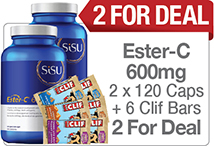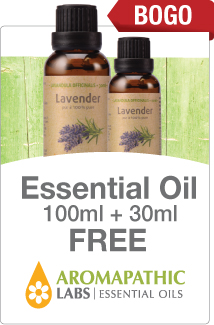- 20mg
- Magnesium (Citrate)
- 2.5g
- D-Ribose
Format
 Powder
Powder
263g
Dosage
For proper muscle function and good health, take one to four scoops daily, or as directed by a qualified health care practitioner. For workout support, energy, and endurance in high intensity exercise take three to four scoops daily. Mix product well in one to two cups of liquid (water, juice, etc.) immediately before consumption. Take with or without food.
Important Information
Contains no wheat, gluten, nuts, peanuts, sesame seeds, sulphites, mustard, soy, dairy, eggs, fish, shellfish or any animal byproduct. Consult a health care practitioner prior to use if you are pregnant or breastfeeding. Ensure to adequately hydrate before, during, and after exercise.
- A factor in ATP production
- A popular sports nutrition supplement
- May be used therapeutically for coronary artery disease and angina
- May help symptoms of chronic fatigue and fibromyalgia
- Easy to take powder formula
Related Videos
No Related VideosArticles by a naturopathic doctor.
AOR Canada is the innovative formulators of Canada’s best-selling antioxidant support, AOR Advanced B Complex and AOR Tri-B12. They are also known for their top bone health supplements, Ortho Adapt and Bone Basics. You can also SHOP AOR's Nattokinase, and trusted Curcumin Ultra, Curcumin Active and Curcumin95 inflammation support at National Nutrition.ca. AOR are leaders in natural health with innovative product development.
D-ribose, sometimes known simply as ribose, is a naturally occurring, five-carbon sugar that is found in all living cells. It can be synthesized endogenously from glucose and is essential to the functioning of life, as it is a component of all forms of ribonucleic acid (RNA), adenosine triphosphate (ATP), as well as all nucleotides and nucleotide coenzymes. RNA is the single richest source of D-ribose, and D-ribose from RNA is converted to D-deoxyribose, a component of DNA (Deoxyribonucleic acid), the building block of life itself.
When combined with D-ribose, the pervasive purine adenine (a central base of nucleotides) forms adenosine, which in turn amalgamates three phosphate molecules to form adenosine triphosphate (ATP). ATP is known as the 'molecular currency' of intracellular energy transfer, providing energy for every move and chemical reaction made by the body.
ATP generates energy when it is hydrolyzed, causing one or two of its phosphate molecules to break off, releasing large amounts of energy. When one phosphate molecule breaks off, the remaining compound becomes adenosine diphosphate, or ADP. With the release of a second phosphate molecule, the resulting compound is AMP, or adenosine monophosphate. In order to properly regulate its energy reserves, the cell must maintain a certain ratio of ATP, ADP, and AMP nucleotides. However, under conditions of stress - particularly cardiac ischemia - the cell is simply unable to generate ATP fast enough. This leads to an initially disproportionate amount of ADP and AMP, and if ATP levels continue to be depleted, the cell initiates something of an emergency measure known as the myokinase reaction. This is when two ADP nucleotides are combined to form one ATP nucleotide and one AMP nucleotide, which although satisfies at least some of the demand for ATP, also results in a buildup of already disproportionate levels of AMP. In order to restore balance, AMP must be degraded to simpler end products and flushed out of the cell. This results in a dramatic decline in adenine nucleotide pools - up to 50% following heart muscle ischemia - and requires several days or longer for a return to baseline levels, resulting in significantly prolonged recovery times. The inability of the heart and skeletal muscle cells to replenish their nucleotide pools quickly enough is due in large part to the inefficient metabolism of endogenous ribose needed for ATP nucleotide re-synthesis.
PHARMACOKINETIC MECHANISM OF ACTION
The body produces endogenous ribose from glucose mainly via the Pentose Phosphate Pathway (PPP), and this is a lengthy and complex process involving rate-limiting enzymes, particularly glucose-6-phosphate dehydrogenase (G-6-PD). Supplemental D-ribose bypasses the G-6-PD reaction and is expediently converted by the PPP into D-ribose-5-phosphate and then to 5-Phosphoribosyl 1-pyrophosphate (PRPP), which is the active form of D-ribose utilized by the body. The latter is critical in the de novo synthesis and salvage pathways of purine nucleotide formation as well as in the synthesis of pyrimidine and L-histidine nucleotides. Supplemental D-ribose can therefore serve as a precursor for PRPP, enhancing its nucleotide synthesizing and salvaging capability - with ATP being among the primary nucleotides being synthesized and salvaged.
Supplemental oral D-ribose is also extremely bio-available, with 88-100% being absorbed directly from the small intestine with very little first-pass metabolism occurring in the liver. It is then distributed to various tissues of the body, including cardiac and skeletal muscle, where phosphorylation by the PPP (and to a lesser extent through glycolysis and other pathways) takes place.
D-ribose and Cardiovascular Ischemia
The effectiveness of D-ribose has been demonstrated in the gold standard of scientific study; double-blind, placebo-controlled human trials. In one study of 20 men (aged 45 to 69) with severe documented coronary artery disease (CAD) and a history of angina induced by normal daily activities, 60 grams of D-ribose (in four doses of 15 grams each) were tested against a placebo. Treated subjects exhibited improvement as measured electrocardiographically, and time to onset of moderate angina (during exercise testing) increased significantly in the ribose-treated subjects. The authors concluded: "In patients with CAD, administration of ribose by mouth for three days improved the heart's tolerance to ischemia. The presumed effects on cardiac energy metabolism offer new possibilities for adjunctive medical treatment of myocardial ischemia." In another study involving 15 patients with coronary heart disease and congestive heart failure, it was found that 15 grams of D-ribose daily for three weeks resulted in improved diastolic heart function as well as increased scores in physical function and quality of life.
D-ribose and Fibromyalgia/Chronic Fatigue Syndrome
Fybromyalgia (FMS) and Chronic Fatigue Syndrome (CFS) are debilitating conditions that have been diagnosed with increasing frequency, especially since the late 1980's. The aforementioned role of D-ribose in the composition and generation of ATP has led to the hypothesis that it may be of assistance to patients suffering from these conditions. Scientists put this hypothesis to the test in 2006 when 41 patients diagnosed with FMS and/or CFS were given 15 grams of D-ribose daily for 19 days. The results were that 66% of the patients experienced 'significant improvement' in all five categories of a standardized Visual Analogue Scale questionnaire (VAS): energy; sleep; mental clarity; pain intensity; and well-being. The patients experienced an average increase of 45% in energy and 30% in well-being.
D-ribose and Exercise
D-ribose also has benefits for healthy people who are in need of extra energy. A double blind, placebo-controlled trial observed the effects of supplemental ribose on body composition and exercise performance. 20 healthy, young male recreational bodybuilders aged 18-35 were given 10g/day D-ribose (5g before and after training) for 4 weeks. Training involved participation in a heavy-resistance program designed to increase skeletal muscle mass. There was a significant increase in the total work performed and in 1-RM bench press strength at the end of the study compared to the beginning in the D-ribose group. These changes were not seen in the placebo group, leading researchers to conclude that the supplementation contributed to increases in muscular strength and exercise performance.
D-ribose is extremely well-tolerated in human trials, and its fundamental role in the make-up and synthesis of ATP continues to attract interest from the scientific community for the study of an increasing number of health conditions affected by energy metabolism.
- Reviews
- POST A NEW REVIEW





















